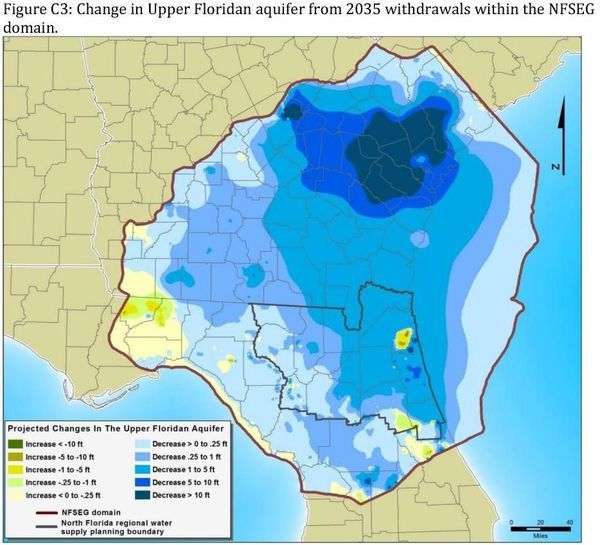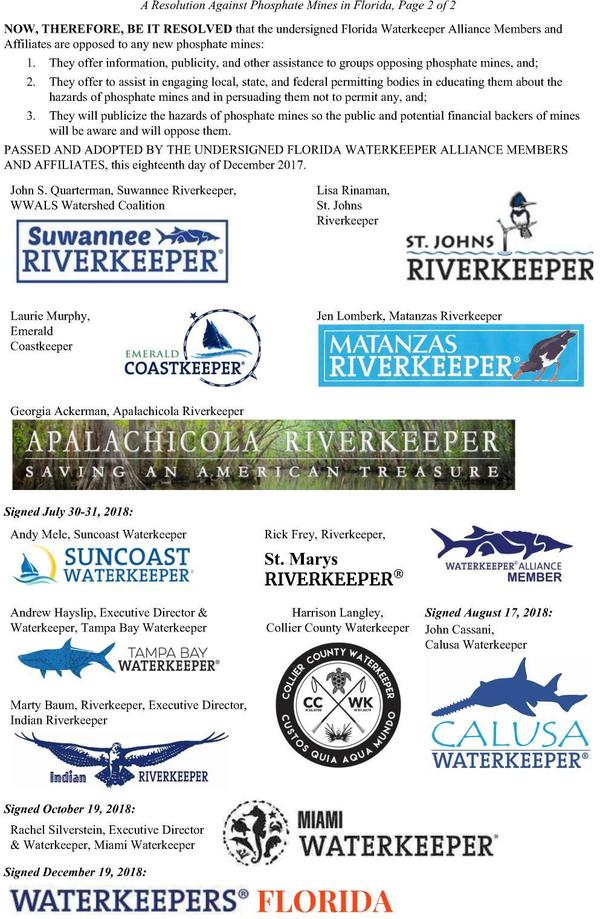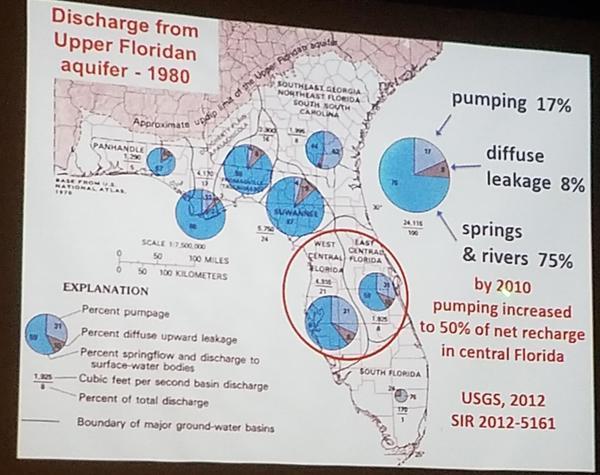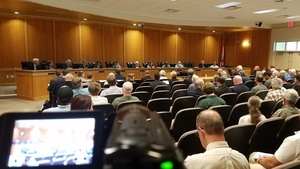Where does the buck stop for these “routinely anticipated budget shortfalls”?
Who let a budget include those?
Isn’t the point of a budget to, well, budget for what’s needed?
Or, given the history of deliberate downsizing of environmental agencies in Florida,
maybe shortfalls were the point.

Noah Valenstein got the job as secretary of the Department of
Environmental Protection on Tuesday May 23rd, on a unanimous vote by
Gov. Rick Scott and the Cabinet. His previous job? Executive
director of the Suwannee River Water Management District, which was
flagged by state auditors for $22.5 million in “questionable costs”.
The audit covered the time Valenstein led the district. He oversees
the district in his new job.
[Special to the Times]
Mary Ellen Klas, Miami Herald-Times Tallahassee Bureau, 14 July 2017,
Auditors find millions in ‘questionable costs’ at water district,
Weak budgetary controls led to $22.5 million in “questionable
costs,” auditors found. Officials had transferred $13.3
million of it into the district’s operating account without proper
authority. They may have overspent some areas of the budget and
directed money to other areas to make up for shortfalls. They set
aside $3.8 million “in the event of an economic crisis”
without authorization, and they steered $1.7 million “to cover
routinely anticipated budget shortfalls” without explanation.
Contingency funds, sure, but “routinely anticipated”?
And in an economic crisis, wouldn’t it be the legislature that should
be authorizing funds?
Auditors concluded that accounts were “misclassified because
district personnel misunderstood” standard accounting
requirements and budget staff members were “somewhat new to
the process” so they couldn’t explain how and why it happened.
That is what happens when a state massively defunds its environmental agencies
and makes political tests and servicing economic development
more important than competence.
The article goes into that, rightly pointing a finger repeatedly
at Governor Rick Scott, who said
“ensuring that Florida’s precious water resources are protected and managed in the most fiscally responsible way possible” while:
The five districts, whose boards are appointed by the governor and
operate under the oversight of the Department of Environmental
Protection, were
purged of hundreds of veteran professionals, and
budgets were cut in half. They continued cutting their budgets
through 2016. Suwannee, because of its small size, had
proportionally fewer cuts.
The article discusses and quotes SRWMD staff, with some pretty amusing tidbits,
including this one from “Roary E. Snider, the district’s chief of staff”, who
also disputed the auditor’s claim they don’t have documentation.
“While we absolutely will provide these records, these
documents were largely in hard copy,” Snider said.
“Staff couldn’t assemble these additional records in
time.”
SRWMD staff don’t know how to use a scanner?
Or they didn’t know where they put those paper documents?
Or maybe the dog ate them.
The article even quotes Eric Draper of Audubon Florida about
“problems we’ve seen at the Suwannee River district with the
change of leadership over the years,”.
If Audubon Florida “works closely with the water management districts”,
what did Audubon Florida know, when did they know it, and why are they
only speaking up now?
The actual audit report lists on page 2:
Executive Director
Noah Valenstein from October 13, 2015
Carlos Herd, Interim, from May 14, 2015, to October 12, 2015
Dr. Ann B. Shortelle to May 13, 2015
The article mentions that:
The district is overseen by the Florida Department of Environmental
Protection, which is now headed by Noah Valenstein. His last job was
executive director of the Suwannee River WMD during the time the
audit was underway.
Guess which fox the foxhouse is turning to for assistance:
The district said it would turn to the Department of Environmental
Protection for advice on how to resolve the dispute over whether
money is owed to the state.
“DEP has communicated with staff at the Suwannee River Water
Management District, and they have informed us that they are
reviewing accounting and land acquisition records for additional
information,” said Lauren Engel, spokesperson for Valenstein.
“If it is determined that these funds should be returned to
DEP, they would go to the trust fund from which the funding was
issued, however, DEP would require spending authority from the
legislature to use it.”
This is the same Noah Valenstein who told me shortly after he was appointed to SRWMD that
he believes that Florida law requires him and SRWMD to provide water resources for economic development.
Maybe he should have paid more attention to making sure the economic resources of the District were properly organized.
The Miami Times-Herald story as carried by tbo.com (Tampa Bay Times) has
a bit more pointed headline and picture caption (see top of this blog post),
Auditors find millions in ‘questionable costs’ at water district,
but will it matter? Continue reading →

![[SRWMD, NFRWSP]](https://www.wwals.net/pictures/2023-10-09--nfrwsp/many.jpg)
![[Meeting Notice and MFLs]](https://www.wwals.net/pictures/2023-03-15--suwannee-river-mfl-meeting/many.jpg)
![[Collage]](https://www.wwals.net/pictures/2019-08-01--nfseg/many.jpg)
![[2019-04-03 White Sulfur Spring Flowing]](https://www.wwals.net/pictures/2016-12-12--djprice-nfrwsp/2019-04-03--white-sulfur-spring-flowing.jpg)

![[CFWI Workshop scheduled for July 9, 2020]](https://www.wwals.net/pictures/2020-07-09--cfwi-workshop/CFWI-Rulemaking-Workshop-Scheduled-0001.jpg)




